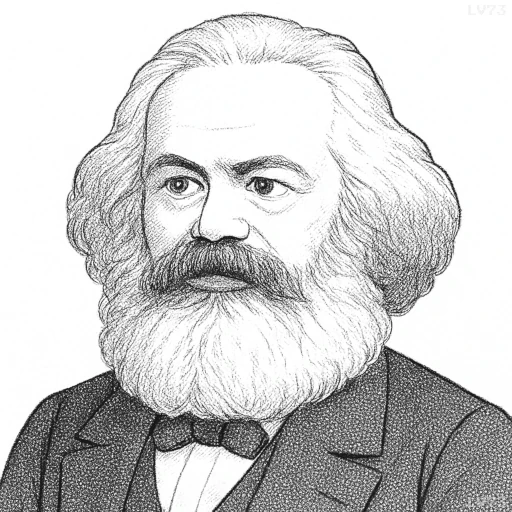“The meaning of peace is the absence of opposition to socialism.”

- May 5, 1818 – March 14, 1883
- Born in the Kingdom of Prussia (Germany)
- Philosopher, economist, political thinker
table of contents
Quote
“The meaning of peace is the absence of opposition to socialism.”
Explanation
In this quote, Marx defines peace not merely as the absence of conflict, but as the absence of opposition to socialism, which he views as the ultimate goal of human progress. For Marx, true peace can only be achieved when the class struggle is resolved through the establishment of a socialist society—one where the means of production are collectively owned and wealth is distributed according to need, rather than profit. The conflict between the bourgeoisie (capitalist class) and the proletariat (working class) is central to Marx’s view of history, and he sees the end of this conflict as the foundation for a peaceful society. The absence of opposition to socialism means that society has reached a point where the workers’ revolution has succeeded and the forces of capitalism are no longer able to maintain their dominance.
Historically, Marx viewed capitalist societies as inherently exploitative, where the ruling class used their power to suppress the working class and maintain their wealth. For Marx, socialism was the solution to this systemic oppression, and peace could only exist in a society that no longer had these power imbalances. The capitalist class’s opposition to socialism—whether through political suppression, economic pressure, or ideological control—was seen by Marx as the primary barrier to genuine peace and human liberation. Thus, peace, in the Marxist sense, could only be achieved when capitalism was replaced by a socialist system that prioritized equality, solidarity, and collective well-being.
In contemporary terms, Marx’s view of peace and socialism can be seen in the context of modern socialist movements or revolutionary struggles that aim to overthrow capitalist systems. In countries where socialism is still viewed as a threat by ruling elites, Marx’s definition of peace might reflect the ongoing tensions between capitalist governments and socialist groups or ideas. For example, economic inequality, political repression, and class struggle remain central issues in debates over the future of capitalism and socialism. In this light, peace for many socialists today is not simply the absence of war, but the establishment of a society where capitalist opposition to socialist ideals has been overcome, and where systems of economic justice and social equality are in place.
Would you like to share your impressions or related stories about this quote in the comments section?


